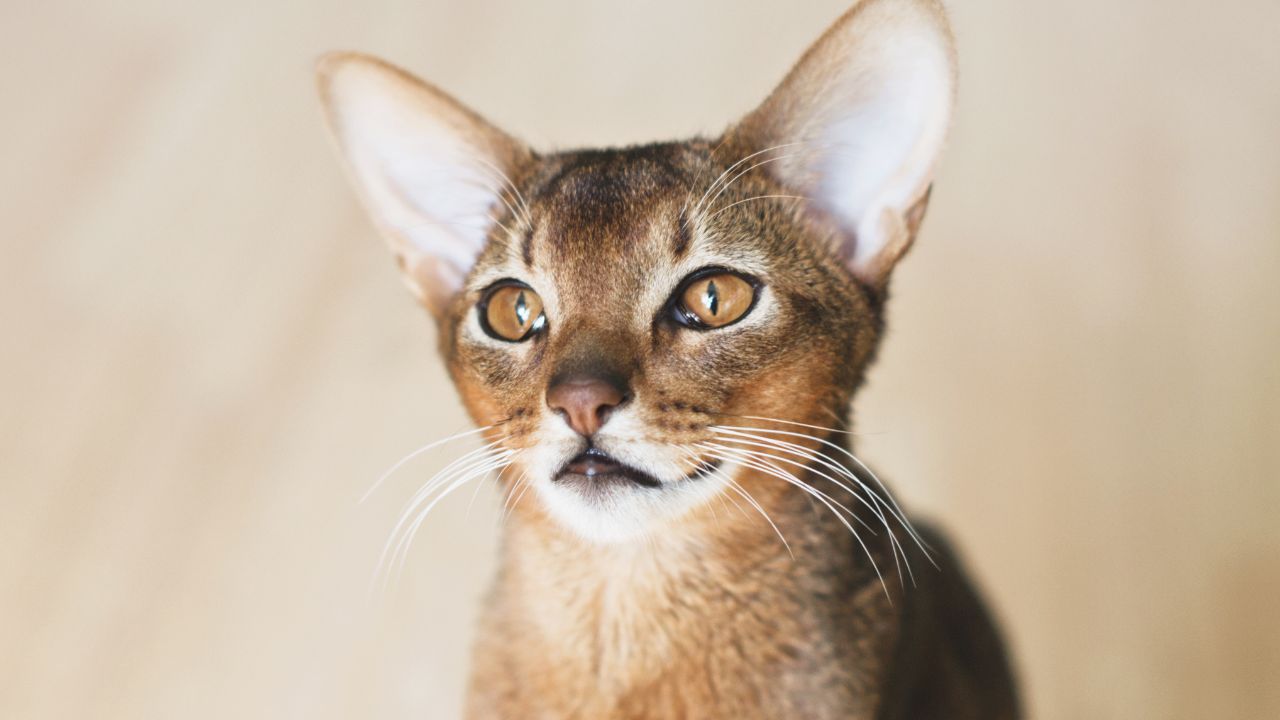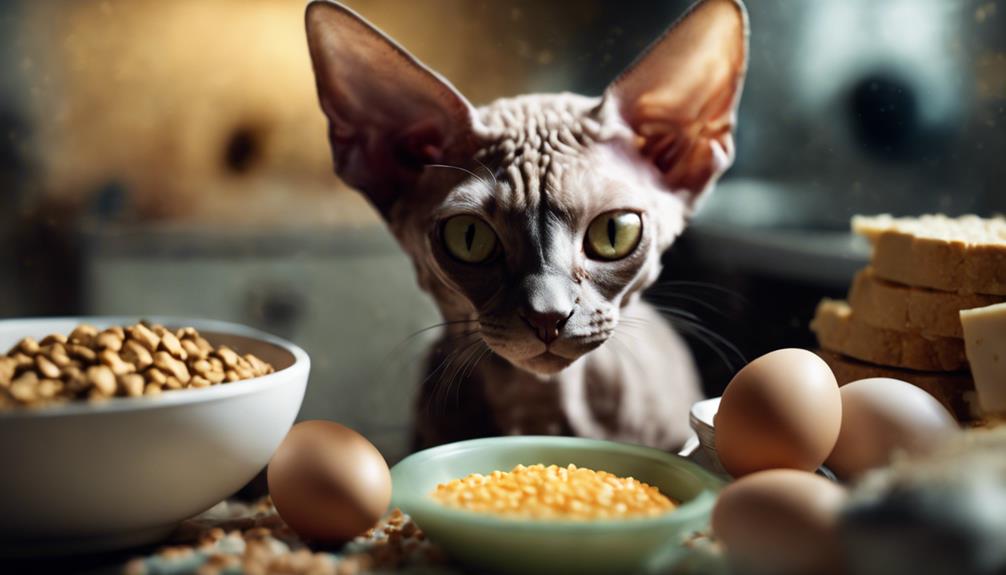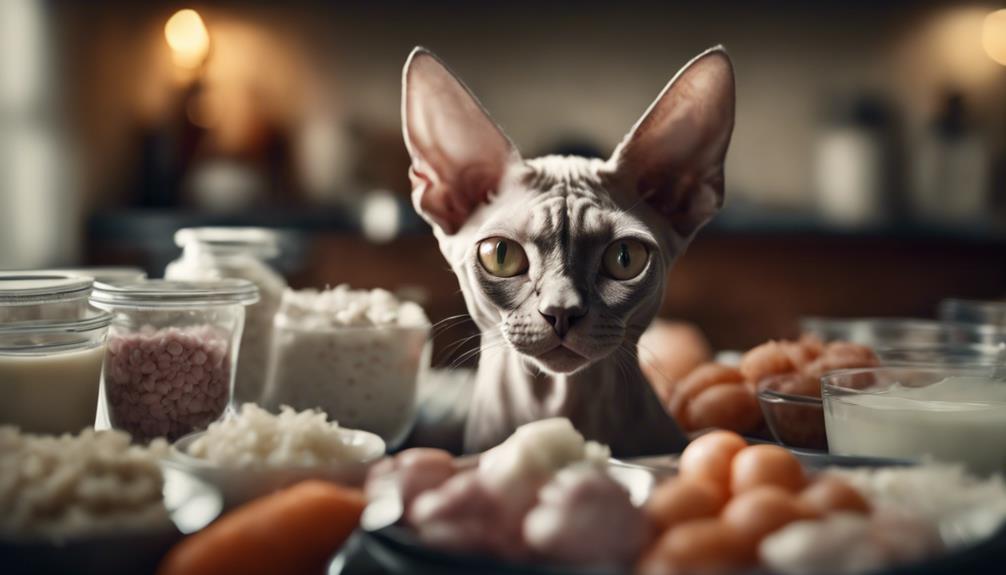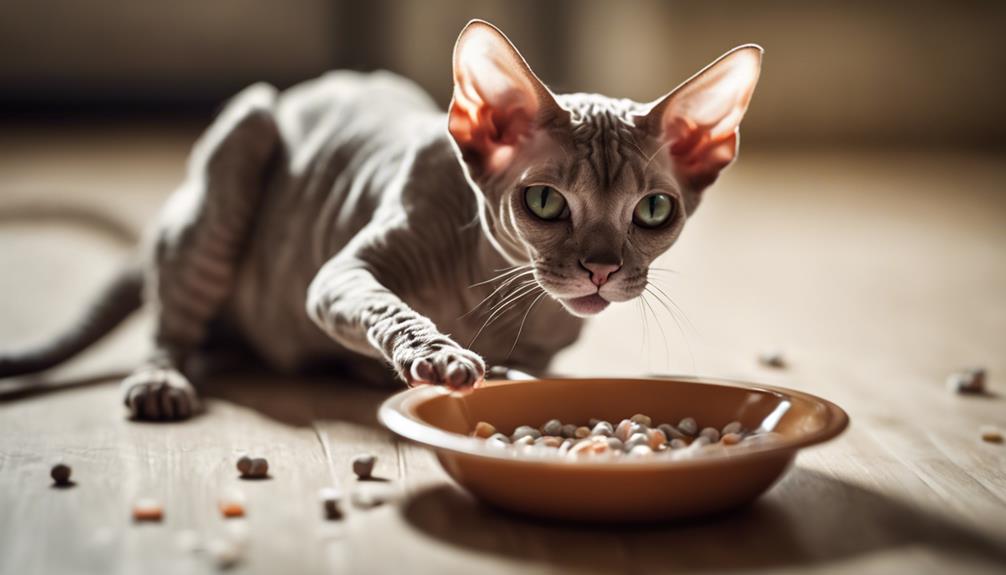As a proud owner of an Abyssinian cat, I know firsthand how important it is to provide them with a balanced and nutritious diet. These cats have high energy levels and require a diet that can keep up with their active lifestyles. But what exactly should you be feeding your Abyssinian cat?
First and foremost, it’s important to understand that Abyssinian cats have unique dietary needs. These cats require a diet that is high in protein and low in carbohydrates to maintain their lean muscle mass. Additionally, Abyssinians are prone to certain health issues, such as kidney disease and dental problems, which means that their diet should be tailored to address these issues.
So, what do Abyssinian cats eat? The answer is a high-quality, protein-rich diet that is specifically formulated for their unique needs. This can include wet or dry food that contains real meat, as well as supplements such as probiotics and omega-3 fatty acids to support their overall health and wellbeing. By providing your Abyssinian cat with a nutritious and balanced diet, you can ensure that they live a long, healthy, and happy life.
Basic Nutritional Needs of Abyssinian Cats
As an Abyssinian cat owner, I know that providing my cat with a balanced diet is essential for their health and well-being. Here are the key nutritional needs that Abyssinian cats require:
Protein
Protein is an essential nutrient for cats, and it should make up the majority of their diet. For Abyssinian cats, the macronutrient breakdown should be 52% protein. Look for cat food that has meat as the first ingredient to ensure that your cat is getting high-quality protein. Avoid cat foods that have cheap fillers and artificial colors and preservatives, as they can cause health problems.
Fat
Fat is another important nutrient for Abyssinian cats, and it should make up about 36% of their diet. Fat provides cats with energy and helps them absorb vitamins. Look for cat food that has a moderate amount of fat, as too much fat can lead to obesity and other health problems.
Carbohydrates
Carbohydrates should make up about 12% of an Abyssinian cat’s diet. However, cats are obligate carnivores, which means that they do not require carbohydrates in their diet. Look for cat food that has a low amount of carbohydrates or is free of carbohydrates altogether.
Vitamins and Minerals
Abyssinian cats require a variety of vitamins and minerals to maintain their health. Look for cat food that is formulated to meet the nutritional needs of cats, or talk to your veterinarian about adding a vitamin and mineral supplement to your cat’s diet. Avoid giving your cat human food, as it may not provide them with the nutrients they need.
Commercial Cat Food Options
Dry Food
When it comes to dry food options, there are several brands that offer high-quality cat food for Abyssinians. Some of the top brands include Blue Buffalo, Orijen, and Smalls. These brands offer a variety of dry food options that are specifically designed for cats of all ages and life stages.
When selecting dry food for your Abyssinian, it’s important to look for options that are high in protein and low in carbohydrates. This is because cats are obligate carnivores and require a diet that is rich in animal-based protein sources.
Wet Food
Wet food is another great option for Abyssinians. Brands like Royal Canin, Wellness, and Hill’s Science Diet offer a wide range of wet food options that are specifically designed for cats of all ages and life stages.
Wet food is a great option for cats that struggle to stay hydrated, as it contains a high moisture content. Additionally, many wet food options are made with high-quality protein sources, making them a great option for cats that require a high-protein diet.

Semi-Moist Food
Semi-moist food is a great option for cats that prefer a texture that is somewhere between dry and wet food. Brands like Purina and Iams offer semi-moist food options that are specifically designed for cats of all ages and life stages.
When selecting semi-moist food for your Abyssinian, it’s important to look for options that are high in protein and low in carbohydrates. Additionally, it’s important to make sure that the food is made with high-quality ingredients and does not contain any artificial preservatives or additives.
Homemade Cat Food Recipes
As an Abyssinian cat owner, I know how important it is to feed my cat with the right food. While there are many commercial cat foods available in the market, I prefer to make homemade cat food for my furry friend. Here are some homemade cat food recipes that your Abyssinian cat will love:
- Chicken and Rice Cat Food Recipe: This recipe is easy to make and contains chicken, rice, and vegetables. Start by cooking the chicken and rice separately. Once they are cooked, mix them together with some steamed vegetables like carrots and green beans. This recipe is a great source of protein and carbohydrates for your Abyssinian cat.
- Beef and Cottage Cheese Cat Food Recipe: This recipe is a great source of protein and calcium for your cat. Start by cooking some ground beef and mixing it with cottage cheese. You can also add some vegetables like spinach and carrots to the mixture. This recipe is easy to make and your cat will love it.
- Raw Chicken and Salmon Cat Food Recipe: This recipe is a great source of protein and omega-3 fatty acids for your cat. Start by grinding some raw chicken wings and salmon together. Add some raw chicken heart, beef kidney, and chicken liver to the mixture. Mix in a raw egg with the shell and a taurine supplement. This recipe is perfect for cats that enjoy raw food.
It’s important to note that homemade cat food should be prepared with care to ensure that your cat is getting all the necessary nutrients. Consult with your veterinarian before making any changes to your cat’s diet. Also, make sure to use high-quality ingredients and avoid any foods that are toxic to cats, such as onions, garlic, and chocolate.
Foods to Avoid
As an Abyssinian cat owner, I know how important it is to provide my feline friend with a healthy and balanced diet. While there are many foods that are safe for cats to eat, there are also some foods that should be avoided.
One food that should be avoided is garlic and onion. These foods contain disulfide, a substance that can cause hemolytic anemia in cats. This can lead to a range of symptoms, including weakness, vomiting, and diarrhea.
Another food to avoid is chocolate. Chocolate contains theobromine, a substance that can be toxic to cats. Even small amounts of chocolate can cause symptoms such as vomiting, diarrhea, and seizures.
Cats should also avoid foods that are high in fat. While some fat is necessary for a healthy diet, too much fat can lead to obesity and other health problems. Foods that are high in fat include fatty meats, cheese, and butter.
Finally, it’s important to avoid giving your cat bones. Abyssinian cats swallow food without chewing, which means that bones can easily get stuck in their throat or digestive tract. This can lead to serious health problems, including blockages and perforations.
Top Takeaways
After researching what Abyssinian cats eat, here are the top takeaways:
- Abyssinian cats require a diet high in protein and moderate in fat content.
- Wet food options like chicken, turkey, and fish are good choices for feeding Abyssinian cats.
- Dry food can also be supplemented into an Abyssinian cat’s diet, but it should be specifically designed for the breed.
- It’s important to provide high-quality nutrition for Abyssinian cats to support their healthy development and strong muscles.
- Weekly combing and occasional baths can help remove dander, debris, and loose hair from an Abyssinian cat’s short coat.
Overall, feeding an Abyssinian cat a balanced and nutritious diet is essential for their health and well-being. By providing them with high-quality protein and moderate fat content, you can ensure that they maintain strong muscles and healthy development. Additionally, supplementing their diet with wet and dry food options that are specifically designed for Abyssinian cats can help provide them with the necessary nutrients they need to thrive.




